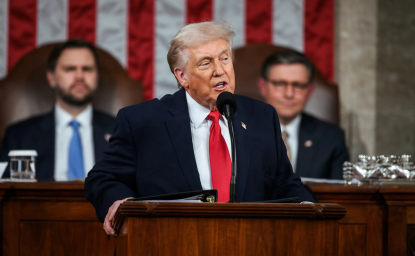Wilson Center Public Policy Scholar and Professor Matthew Holden, Jr. was recently elected to the American Academy of Arts and Sciences. The Academy honors distinguished scientists, scholars, and leaders in public affairs, business, administration, and the arts.
Holden was one of 183 new Fellows chosen from around the country in 2001 and one of seven elected to the Political Science, International Relations, and Public Policy section. Since 1981, Holden has been the Henry L. and Grace M. Doherty Professor of Government and Foreign Affairs at the University of Virginia. In 1996 he was the Newman Visiting Professor of American Civilization at Cornell and in 1998-99, the President of the American Political Science Association.
About Matthew Holden
While in residence at the Wilson Center, Holden has been working on a study of regulatory policy and practice based on experience from the Federal Energy Regulatory Commission. Holden also served on the Task Force on Electric System Reliability [U. S. Department of Energy], 1996-98; the Public Service Commission of Wisconsin [1975-77]; and, the President's Air Quality Advisory Board [1971-74.]
As political scientist, he has worked in several fields, but primarily in public administration/public policy, with a particular interest in energy and in executive politics. He has also written in law and politics, urban politics, American government, and in methodology. His earliest training was "behavioral," when "behavioralism" was itself young. Holden's earliest writing was about problems of decision-making, about urbanism and metropolitan governance as a problem in diplomacy, and about inter-organizational politics in government.One of Holden's current research interests is in looking for the fewest central explanatory principles that allow for the widest variety of inquiry into the organization of control in human groups (governments, corporations, churches, universities).
About the Academy
Founded in 1780, the Academy is one of the oldest learned societies in the country. According to its charter, the Academy's purpose is "to cultivate every art and science which may tend to advance the interest, honor, dignity, and happiness of a free, independent, and virtuous people."
The Academy is unique in its breadth and scope. Throughout its history, it has gathered individuals with diverse interests and perspectives to participate in meetings, studies, and projects focusing on critical social issues of universal concern. The Academy has numbered among its members the finest minds in each succeeding generation—from John Adams, George Washington, and Benjamin Franklin in the eighteenth century to Thomas Jefferson, Daniel Webster, Ralph Waldo Emerson, and Alexander Graham Bell in the nineteenth and Albert Einstein, Woodrow Wilson, Charles Steinmetz, and Samuel Eliot Morison in the twentieth.
Explore More
Browse Insights & Analysis
Wilson Center Fellows on the 2026 State of the Union Address


